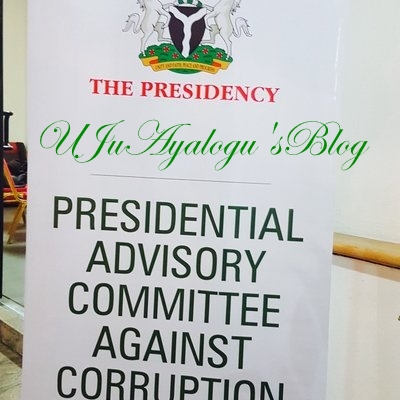Presidential Advisory Committee Against Corruption (PACAC) Monday said it was not at war with the judiciary, but was “furious” with some judges and lawyers who allegedly sabotage the judicial process.
A member of the committee, Prof Femi Odekunle, said PACAC was not against the judiciary.
He spoke in Abuja at the opening of a four-day Capacity Building Workshop for Judges, Magistrates, Area Court Judges and Registrars, organised by PACAC in collaboration with the High Court of the Federal Capital Territory (FCT).
Chief Judge of the FCT High Court, Justice Ishaq Bello, said criminal cases in which much progress have not been made would be struck out.
READ ALSO : Buhari Okays Payment Of Outstanding Paris, London Club Refunds
A justice of the Court of Appeal, Helen Ogunwumiju, who gave the keynote address, urged judges to take firm control of their courts so the judiciary does not become the weakest link in law enforcement.
The workshop is on The Application of the Practice Directions on the Implementation of the Administration of Criminal Justice Act 2015.
Prof Odekunle, who chaired the event, said: “Contrary to the perception in certain quarters, PACAC is not against the judiciary, the legal profession or any set of judges or lawyers.
“Yes, PACAC is furious against a few judges, and a few lawyers who are sabotaging the anti-corruption fight, because the few not only frustrate the fight, they also damage the diligent and honest work of the so many good and hardworking judges of our judiciary.”
Prof Odekunle said judges alone are not to blame for the delay of cases.
“For instance, judges cannot be blamed for the archaic rules/regulations that literally ‘tie’ the hands of judges and give room for the God-forsaken shenanigans of defence lawyers; incompetent prosecutors further disabled by under-funding, under-staffing or inadequate logistics; and investigators who by default (and sometime by design) ignore to properly ‘service’ the ingredients to prove and offence,” he said.
Justice Bello said a committee to be known as De-clogging Panel, would be set up after the workshop with a mandate to identify dormant criminal cases to be struck out.
He said he sent out circulars to all the prosecuting agencies six months ago asking them to compile a list of cases that they could no longer prosecute so they could be struck out.
None of the security agencies responded, he said.
“As soon as we’re able to set up this panel, we’re going to strike out these cases. Judicial tolerance is being overstretched.
“Because we keep bending backwards on the ground that these are cases of armed robbery, murder, the investigating authorities tend to over-capitalise on that and keep seeking adjournments without completing investigations.
“Cases tend to stay in court unattended. By the time we have this panel, I assure you, we’re going to throw out these cases, whether they’re armed robbery or murder cases.
“If they choose to re-arrest, we’ll give them time-line to complete the prosecution, because we must rescue the integrity of the judiciary and the justice system. This we want to do,” he said.
Justice Bello urged judges to exercise caution in extending remand orders.
READ ALSO : Revealed! Why EFCC can’t scrutinise DSS’s financial accounts
He said such detention orders were being granted as a matter of course, with suspects sometimes being unduly detained.
“I think we (judges) should be more proactive, particularly when there is a second remand request.
“We must be able to find reasons; legitimate grounds as to why the extension of the remand order earlier granted should be made. This will check the excesses of the remanding authority. This we should know should not be a matter of course. We must be able to ascertain why.
“In the first instance, we may allow it to go, but when you want to keep the detained persons, you must give us reasons why there should be an extension of the remand order. The idea is to ensure expeditious completion of investigation and reduce delay of trial,” he said.
Justice Ogunwumiju urged judges to be firm and in control of their courts and not let lawyers dictate proceedings.
“We must take back control of our courts. We are dominus litis (master of a suit) in our courtroom. I have never been able to understand how any court would allow counsel representing a client get the opportunity to dictate the tune in the courtroom.
“The law has given the judge the power to dictate the tune for lawyers and litigants to dance to. The judiciary cannot afford to allow itself to become the weakest link in the enforcement of our laws because the wheels of justice grind so slowly.
“It is my ardent hope that all chief judges will follow this laudable example and enact similar Practice Directions in their various jurisdictions,” Justice Ogunwumiju said.
Are you an artiste? Do you want your music to go viral and reach a large number of audience? Promote your music and Submit your story on Ujuayalogusblog.com by clicking here. For Advert Inquiries Tel/+44(0)7590363984 Subscribe to Ujuayalogusblog.com News!
For More: Visit Us at Uju Ayalogu's Blog











No comments:
Post a Comment